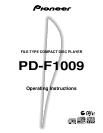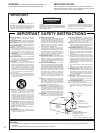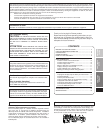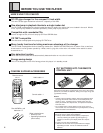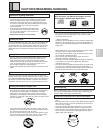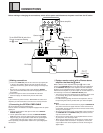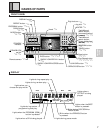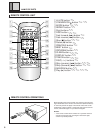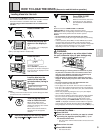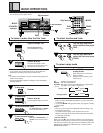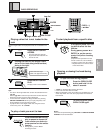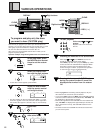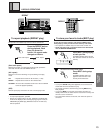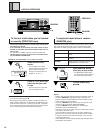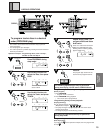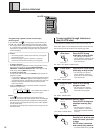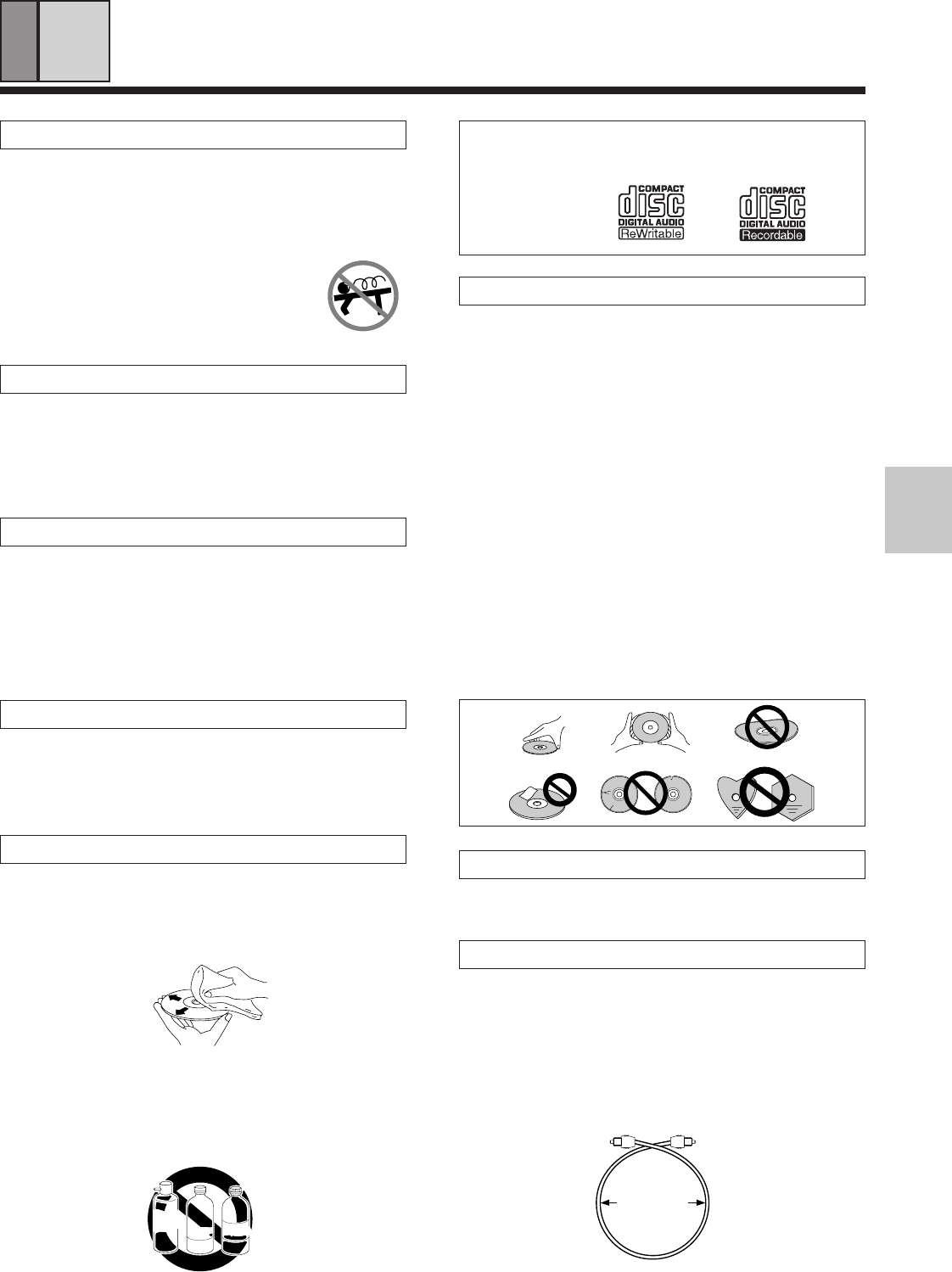
5
VARIOUS
OPERATIONS
BASIC
OPERATIONS
BEFORE
OPERATING
Playing CD-R and CD-RW discs in this CD changer
• This unit can play CD-R and CD-RW discs. However, it may not
be possible to play unfinalized discs* which have very little
recording time left on them.
* What is finalization?
Finalizing a CD-R or CD-RW disc means making a recorded disc
playable on an ordinary CD player. In the case of CD-RWs, the
player must be specifically compatible with CD-RW discs for it
to play them.
• When holding discs, do not touch their signal surfaces. Hold by
the edges, or by one edge and the center hole.
• Do not affix gummed labels or tape to the label surfaces. Also,
do not scratch or damage the label.
• Discs rotate at high speed inside the player. Do not use
damaged (cracked or warped) discs.
• Do not play a CD with a special shape (having other shape than
a circular disc, such as a heart shaped disc). Otherwise
malfunction may occur.
• The CD accessories (stabilizer protection sheet, protection ring,
etc.) which are marketed for improving the sound quality or
protecting discs as well as the disc cleaner should not be used
with this system because they may cause malfunction.
Re-transporting
When transporting this unit in the future, remove all discs from the
rack. Turn off the STANDBY/ON switch, wait for "OFF" to go out
from the display. Then unplug the power cord.
Precautions concerning use of optical fiber cables
• Fully insert the optical fiber cable plugs all the way into the
jacks.
• Be careful not to fold or crimp the cable. When coiling an optical
fiber cable for storage, make sure the diameter of the coil is 15
cm (5-14/16 in.) or larger.
• Use an optical fiber cable with a length of 3 m (10 ft.) or less.
• Protect the optical fiber cable plugs from scratches and dust.
• When the unit is not connected using an optical fiber cable, be
sure to keep the protective dust cap plugged into the optical
digital output jack at all times.
Precautions regarding installation
• Placing and using the compact disc player for long periods on
heat-generating sources such as amplifiers will affect perfor-
mance. Avoid placing the player on heat-generating sources.
• Install this compact disc player as far as possible from tuners
and TV sets. A compact disc player installed in close proximity
to such equipment may cause noise or degrada-
tion of the picture.
• Such noise may be particularly noticeable when
an indoor antenna is used. In such cases, make
use of an outdoor antenna, or turn off power to
the compact disc player.
• Please place this unit on a level surface.
Cleaning the player
To clean the PLAYER, wipe with a soft, dry cloth. For stubborn dirt,
wet a soft cloth with a mild detergent solution made by diluting
one part detergent to 5 or 6 parts water, wring well, then wipe off
the dirt. Also use a dry cloth to wipe the surface dry. Do not use
volatile liquids such as benzene and thinner which are harmful to
the unit.
Storing discs
• Discs are made of the same kinds of plastic used for conven-
tional analog audio records. Be careful not to allow discs to
warp; always store discs in their cases vertically, avoiding
locations with high heat or humidity, or extremely low tempera-
tures. Avoid leaving discs in cars, since the seat of a car in
direct sunlight can become unbelievably hot.
• Always read and abide by the precautionary notes listed on disc
labels.
CD lens cleaner
The player's pickup lens should not become dirty in normal use,
but if for some reason it should malfunction due to soiling, consult
your nearest PIONEER authorized service center. Lens cleaners for
CD players are commercially available, but special care should be
exercised in their use since some may cause damage to the lens.
Cleaning and handling compact discs
• The presence of fingerprints or smudges on the surface of the
disc will not directly affect the recorded signals, but depending
on the degree of contamination, the brightness of the light
reflected from the signal surfaces may be reduced, causing
degradation of sound quality. Always keep your discs clean by
wiping them gently with a soft cloth from the inner edge toward
the outer periphery.
• If a disc becomes very dirty, dip a soft cloth in water, and after
wringing it out well, wipe the dirt away gently, and then remove
any water drops with another soft, dry cloth.
• Do not use record cleaning sprays or anti-static agents on discs.
Also, never clean discs with benzene, thinner, or other volatile
solvents, since damage to the disc surface may result.
With this player, use discs which display the mark
shown below. (Optical audio digital discs.)
Record
cleaning
sprays
Thinner
Benzene
'
CAUTIONS REGARDING HANDLING
More than
15 cm
(5-
14
/16 in)



